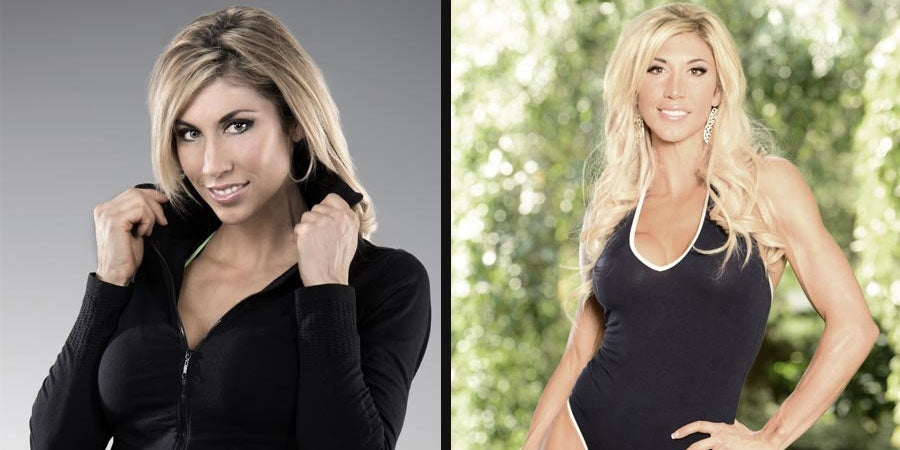
With the new year fast approaching, take a moment to check out 30 great food and fitness tips that will help you reach and maintain your health and fitness goals for 2015!
- Push out side of your comfort zone without beating yourself to a pulp. Work out hard but make sure you listen to your body and rest when you need to rest. When you work out, they should be short but intense.
- Don’t go with trendy fasts or cleanses. These can become popular, but they are not a long term solution. A balanced nutrition and healthy life style is needed for a complete body composition change.
- Educate yourself on macronutrients, minerals, and essential vitamins. If not comfortable teaching yourself, hire someone with a nutrition degree or education to help you. Do NOT relay on instagram pictures and “food porn” to determine your daily food consumption
- Not only know your own BODY, but evaluate your own MIND! Identify your emotional triggers. Realize if you turn to food for comfort or a numbing effect to handle toxic situations or relationships.
- Take time to enjoy your food- don’t rush. If you track your food on a tracking app like “My Fitness Pal”, do it after or before you sit down to enjoy your food so you are not doing it at the same time as you eat. This is important so you can actually smell, chew, and taste every bit of your food. This will slow you down and help you satiety level.
- Don’t be a creature of instant gratification. Think in the future. Make conscious decisions before eating something that you might feel bad about eating later. Tell yourself “I can always have this ABC food item, but do I really want it right now when my goal is XYZ?” This usually allows you to make better decisions and you will get used to using this “self talk” to be mindful of how you are control of your life.
- Don’t pay attention to health related claims of “low fat” and “good source of fiber”. They are often buzz y and misleading because the food is still not a nutritious, filling, healthy option. Example: most crackers, breads, cakes, muffins, or cereals.
- Learn how to read nutrition labels. Understand what everything means and what serving sizes you are actually going to eat.
- Don’t underestimate the power of high volume foods. Think about it, wouldn’t you like to have a big bowl of satisfying oatmeal with cinnamon, an egg white omelet with spinach, peppers, and a side of a fried egg rather than meal replacement bar, granola bar or piece of cake. Guess which usually has more calories anyway? You got it. Eat balanced meals with protein, carbohydrates, and some healthy fats to feel the most satisfied. It is very easy to over eat on things like bars, chips, crackers, and nuts.
- Do quick workouts. Home Tabata style workouts are quick, less boring, and are even a better fat burner then steady state cardio. All Tabata consists of is 20 sec push as hard as you can go then 10 sec of rest.
- The biggest denominator of whether your fat loss diet is going to work is CALORIES. No matter how “clean” and healthy you eat, at the end of the day you have to be in a caloric deficit. The deficit in fact shouldn’t be too drastic from your maintenance caloric intake or your risk damaging your metabolism in the long run. A 15-20% deficit is a good starting point.
- Glove compartment check! I usually have napkins, plastic cutlery, a Core Nutritionals protein powder to-go, and sometimes a quest bar. These are there for times when I’m running late, on the go, stuck in traffic, or whenever. Having some healthy options in the car at all times helps in crunch situations or if you start having cravings for your favorite nearby food place. Non perishable items should be just as important as your registration!
- For healthy protein meals on the go use huge lettuce leaves to wrap your lean protein like a taco. It even works while driving. I guess the disclaimer here though is “be safe”.
- Pay attention to your liver. I usually start my day with 20oz of filtered water and a fresh squeeze lemon. This is a great way to cleanse your liver.
- Don’t completely eliminate any foods you love. Instead have some small amounts. For example, a single bite size piece of chocolate. Remember the sight, emotions, and the feelings that some foods provoke in ourselves are sometimes reasons we tend to over eat on them out of fear of not being able to eat them again for a long time.
- If there are foods that you absolutely cannot have in moderation, don’t even have them in the house. Having to make a specific trip to get these items usually allows for you to make better food choices and your craving passes. Mine would definitely be peanut butter and chocolate.
- Don’t consume food that your body reacts badly towards. For example, don’t eat dairy if it causes you bloating and gastrointestinal discomfort.
- Always have a “go- to” healthy balanced meal you can make fast. Make sure you have those items always in the fridge. For me, this would be eggs and oatmeal. I love to eat this anytime of the day.
- Do body weight exercises. You can get a great sweaty workout without the hassle of the gym. Do things like squat, lunges, burpees, mountain climbers, high knees, and pushups to work the whole body without weights. Challenge yourself by writing out a number of exercises you can do right in your living room and when you find yourself in a crunch just pull out the list and do the items as fast as you can then repeat!
- Positive self talk. This can make or break your fat loss efforts. Hold yourself accountable by asking yourself “why did I just eat that”. By thinking about why you ate the item, recognizing the reason, and then forgiving yourself you can learn from the mistake. When you are forgiving and positive with yourself, you will be less likely to have a all or nothing attitude that usually sabotages the rest of your food choices for the day or even the week.
- Heck with waitress and waiters! Don’t be afraid to ask how food is prepared at a restaurant. I usually ask for things steamed rather than fried, sauce on the side, etc. You are paying for a meal and it is perfectly fine to try to have food prepared with your fat loss goals in mind. Small tweaks in the way your meal is prepared or served to you could mean the difference of hundreds of calories. As we learned, at the end of the day if you want to lose body fat you need to be a calorie deficit not a surplus. Don’t let a waiter or waitress intimidate you, and if they do, tell them you are allergic; they need to pay attention then.
- Tackle “junk” cravings by distraction. Write a list of activities that you can do. Keep the list in plain sight, or more conveniently, on the fridge. When you become bored, or look for something to eat for the heck of it, do a activity on the list. When you are done with the activity usually that craving has passed. Also, try drinking a glass of water when you have a craving. Most the time you are not really hungry but thirsty and/or dehydrated. A sample list could include things like: walk the dog, paint nails, read a chapter in a current book, call a friend, etc…
- Be creative. Try to make healthier versions of foods that are your splurges. An example could be a chocolate casein protein made into a pudding rather than let’s say a big bowl of ice cream.
- Set goals. Make sure your goal is realistic and specific. Also, its important to be flexible and forgiving so you don’t self sabotage if things don’t go perfect or if you have a slip up.
- Track your Food! It is the #1 proven weight management tactic you can use. I use “My Fitness Pal” because it is very easy to use and you can even scan your food in.
- Get out in the sun. Vitamin D is very important for your body. Also, the tan usually helps to make you feel leaner and healthier.
- Make sure to take a rest day. If you are exercising and especially weight lifting, make sure you are taking a full day off each week. It is actually good for your body and will help you perform better next week when you head to the gym.
- Eat tons of vegetables. Everyday eating of colorful veggies makes you feel fuller, provides fiber, and provides bio-available vitamins and minerals for your whole body.
- Nap Time! Take naps if you can because if you are overtired you tend to over eat or snack. Naps also help to reduce stress hormones.
- Smaller plates and silverware. Having smaller plates usually means less food, but visually you see a full plate. Having smaller utensils usually means less food you can actually get in your mouth leading to more time enjoying and really tasting your food plus more work to eat the whole plate giving your body time to recognize the “’I’m full cue”.









